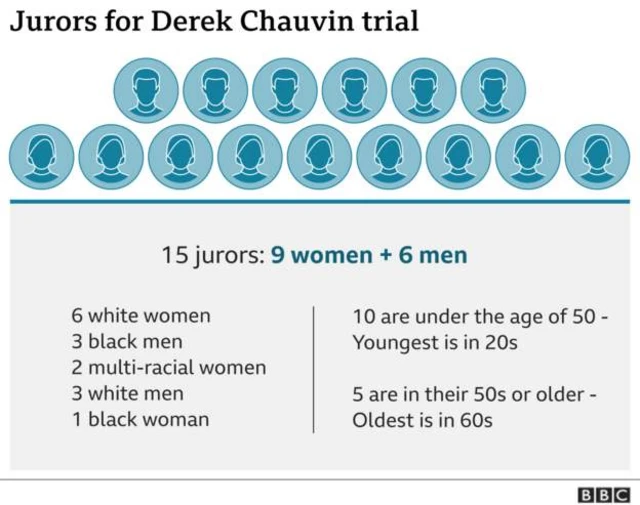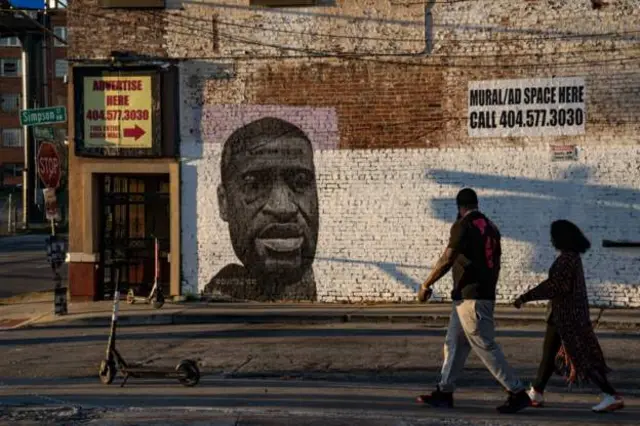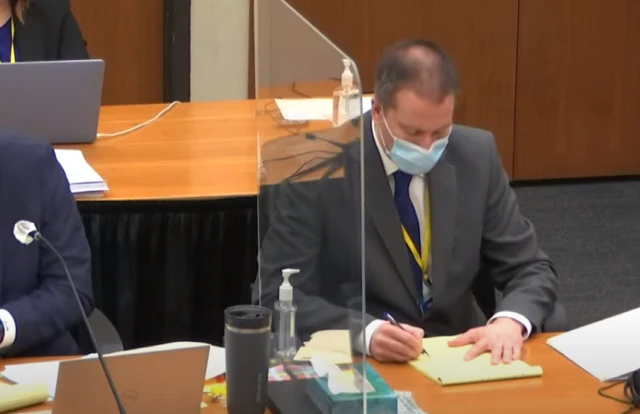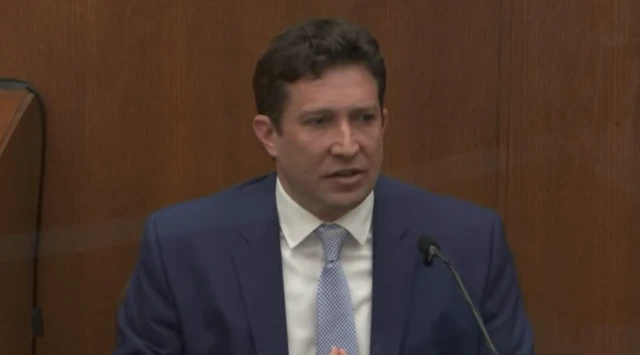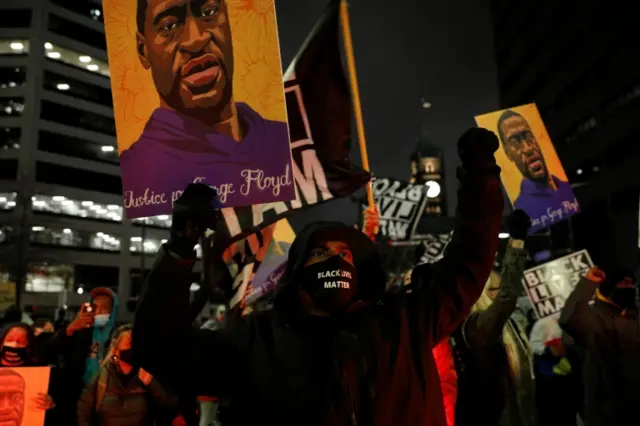Watch: Doctor testifies Floyd did not die of heart attack or overdosepublished at 17:59 BST 12 April 2021
Cardiologist Jonathan Rich earlier told the court that in his professional opinion, George Floyd did not die of a heart attack or drug overdose.
Watch the moment below.
Derek Chauvin Trial: 'Floyd did not die from heart attack or overdose'
